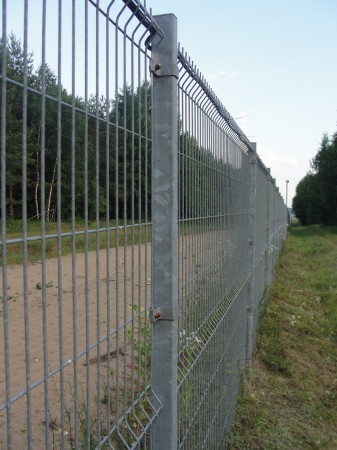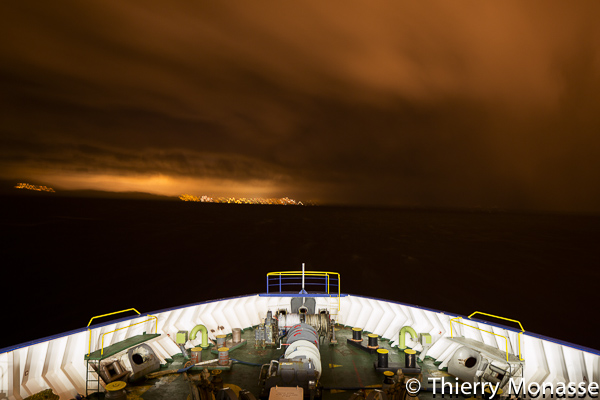The Summitless Refugee Crisis (Maj)

(BRUSSELS2) The seriousness of the crisis of refugees and migrants arriving in Europe is neither a surprise nor an unprecedented fact.
The Syrian conflict in the first place, which saw several million of its inhabitants flee to neighboring countries (Lebanon, Jordan, Turkey in the front line) could not remain confined to these countries close to Europe. Just as the numerous conflicts on the European periphery—Libya—or beyond—Yemen, Sudan, Mali—have accentuated a precarious economic situation. We speak of a migrant crisis where there is above all a refugee crisis. And that is the problem... Because it is not possible to send most of the “migrants” who arrive on European soil back to their country of origin, or their country of transit. But never for at least two years, the question of the Syrian conflict, like the arbitrariness of Eritrea, the desperate situation in Sudan have been addressed at the highest European level (heads of state and government in particular).
This crisis is not unprecedented either. Twenty years ago, during the Balkan crisis, several hundred thousand ex-Yugoslavs found refuge in Europe: in Germany, Austria and Hungary first (in Switzerland and then in the Nordic countries).
What is quite extraordinary is the very weak European response so far. Each state – EU member or candidate for membership – has so far reacted in its own corner, with minimal consultation. Some (Bulgaria, Hungary...) erect walls, barbed wire (*), send the army to the rescue to slow down the flow as much as possible. Others are responsible for passing on the “hot potato” to neighbors (Greece, Macedonia/Fyrom, Serbia, Romania, etc.). A few, more rare, precede the appeal of the refugees (Germany or Austria in particular). In this European cacaphony, France shouts loudly but is careful not to fall into an excess of generosity like its Germanic neighbors...
The weakness of the collective European response sounds even more dramatic in this end of summer torpor in the void. Some European officials were indeed at the summit on the Balkans which has just been held in Vienna. But it was about public expression rather than collective decision-making. At EU level, the schedule of meetings seems unchanged. After a meeting with the Ukrainian President Poroshenko, the President of the European Council, the Pole Donald Tusk has thus planned on his program only a visit to Slovenia and Croatia (decidedly quite ethno-centric). Only the European Commission has taken up its pilgrim's staff. " This crisis is not an Austrian, Italian, French, German, Greek or Hungarian crisis. This is a European crisis and it requires a collective European response stressed in a press release Commissioners Dimitris Avramopoulos (Migrations) and Frans Timmermans (Fundamental Rights), who will be in Calais on Monday (at the same time as French Prime Minister Manuel Valls) and in Austria on September 7.
“This is not an Italian, French, German or a Greek or a Hungarian crisis. This is a European crisis and it requires a collective European response. The Commission put that European response on the table - from increasing our presence at sea, to cooperating with countries of origin and transit, to clamping down on smuggling networks, making returns more effective and implementing the recently adopted common EU asylum rules whilst showing solidarity with frontline countries – we have to address the issue from all angles. We already announced that further proposals will come soon. »
There are a few simple principles to put back on the front of the stage reminded in Vienna, during the summit on the Balkans, the head of European diplomacy Federica Mogherini : « We have a moral and legal duty to protect (the) refugees. (...) These people come to Europe to (seek) protection. They need Europe to protect them and we must live up to our standards in terms of human rights and respect for international obligations... »
“We have, especially coming to the refugee crisis, a moral and legal duty to protect them. This is an international duty that we, as Europeans, value as the priority number one. These people come to Europe, and come to Europe for protection. They need Europe to protect them and we need to live up to our standards of human rights and respect of international obligations to protect them. »
For the moment, nothing has been changed in the European program. The idea of an emergency European summit has made its appearance in Paris as well as in Berlin. But we are careful not to hasten this meeting in Brussels because we are afraid of calling a meeting for nothing. A summit meeting of Heads of State and Government would only make sense if the interior ministers manage to agree on a strategy to follow, Angela Merkel acknowledged today during a press conference in Berlin. A feeling shared at European level where we fear above all to see, instead of concerted decisions, the Europeans affirming their divisions, tearing themselves apart, or even worse, deciding nothing and, in the end, an admission of powerlessness setting in . As summed up fairly well by the head of European diplomacy, F. Mogherini. " We need a European approach, and everyone says so. The problem is that everyone understands Europe in a different way ».
The next meeting scheduled to discuss these subjects is therefore still scheduled for October 8 and 9 for the Ministers of the Interior and October 15 and 16 for the Heads of State and Government. Until then... pray to the refugees to move on or die!
(Updated August 30 + August 31) The Luxembourg Presidency of the EU has decided to convene, for September 14, an exceptional meeting of Ministers of the Interior devoted to migration issues. While a mini summit of the 4 Visegrad countries is organized on Friday (September 4) in Prague between the leaders of Hungary, Poland, Slovakia and Rep. Czech.
(Nicolas Gros-Verheyde)
(*) All eyes are currently on the "barbed wire" installed by Hungary. But the strengthening of borders with the establishment of a strict border is absolutely not a novelty. It is even a recommendation made by the European structures to the member countries of Schengen to ensure the "non-permeability" of the border. And without the assurance that the border is hermetically sealed and controllable, there is no possibility of integrating the Schengen Zone today. This policy also benefits from European financial support, for example, recently in Bulgaria for the construction of a wall facing Turkey.


